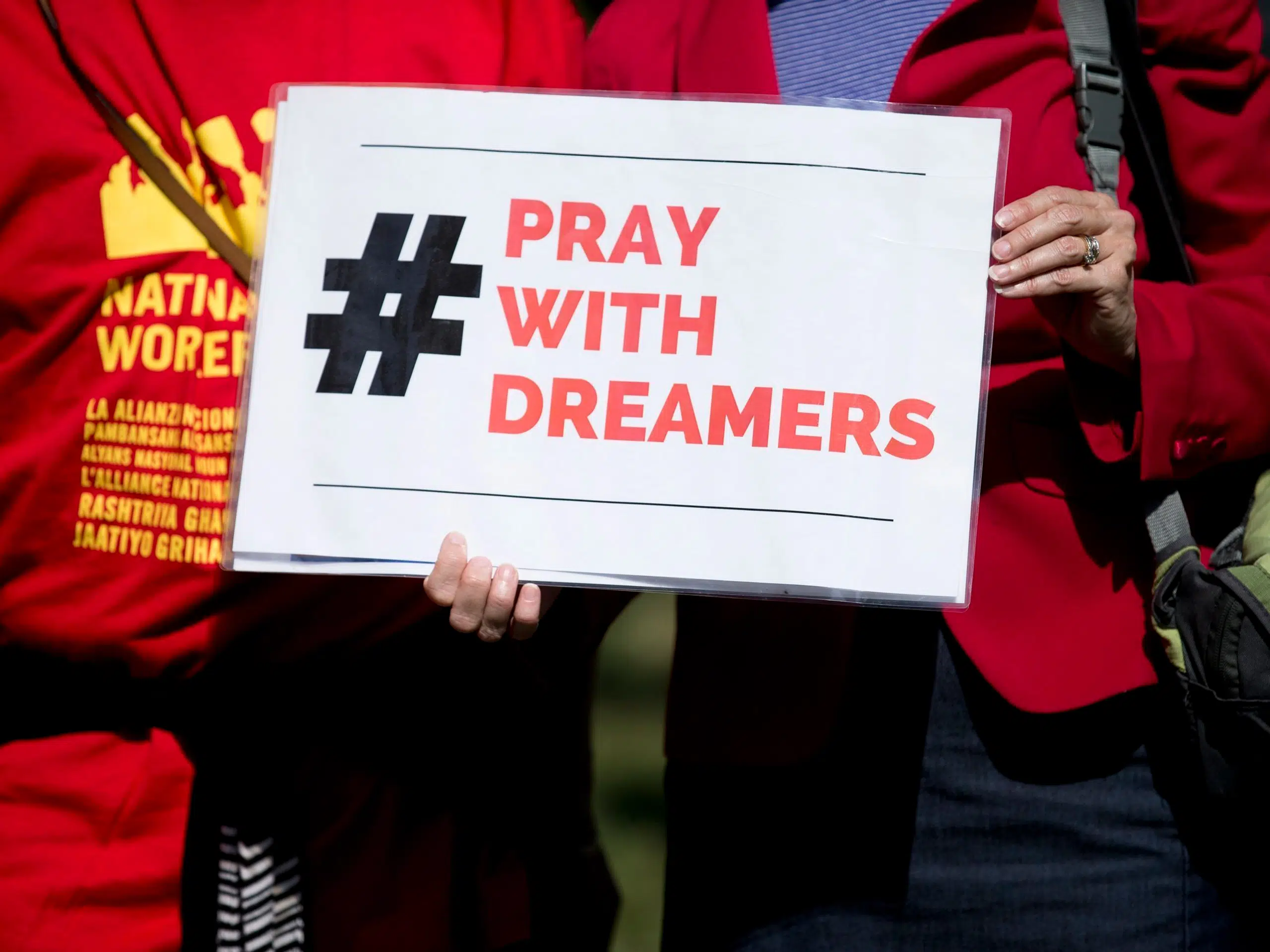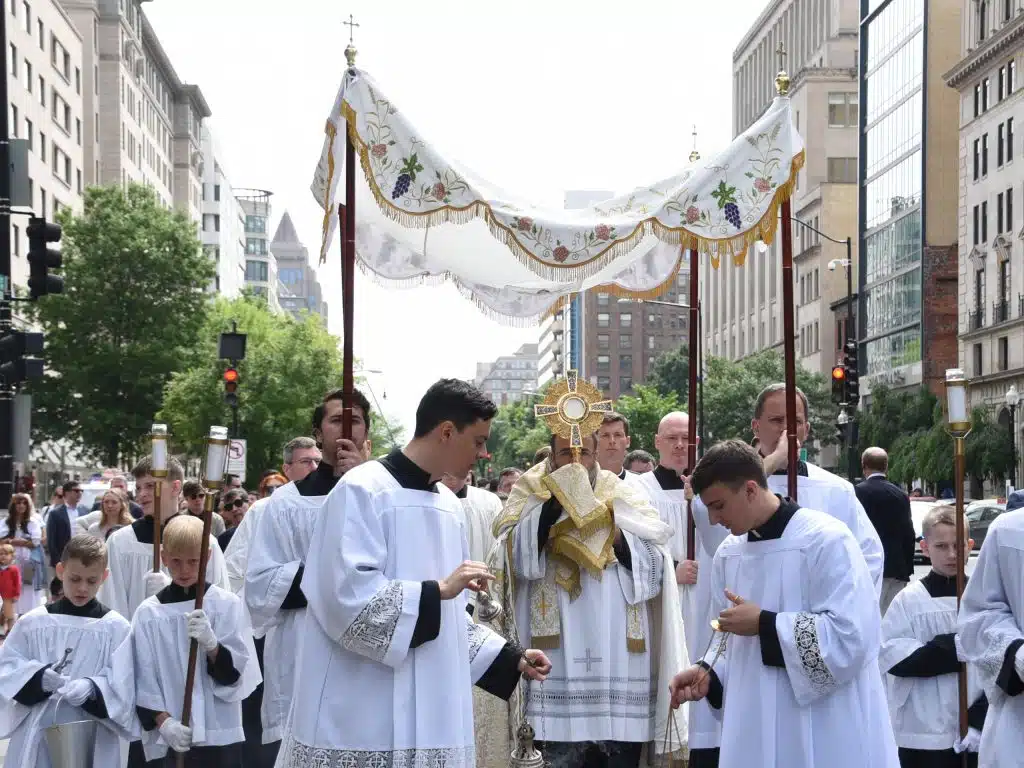WASHINGTON — An Oct. 5 ruling by a federal appeals court — finding the Deferred Action for Childhood Arrivals program is unlawful — sends another signal that permanent legislation is needed to protect young immigrants from deportation and put them on a path to U.S. citizenship, according to the U.S. Conference of Catholic Bishops.
A three-judge panel of the 5th U.S. Circuit Court of Appeals in New Orleans affirmed a lower court’s ruling last year that said the Obama administration did not have the legal authority in 2012 to create DACA in the first place.
This appeals court decision, similar to the ruling last summer from a federal judge in Texas, prevents the Biden administration from enrolling new participants in the program.
The new court decision continues to leave DACA in limbo. It did not say the program had to completely shut down or stop processing renewal applications, but it leaves in place last year’s order from U.S. District Judge Andrew Hanen that said DACA could continue only for current recipients with no new participants.
The 5th Circuit also returned the case to the lower court asking the judge to review new DACA regulations the Biden administration announced in August and set to go into effect Oct. 31.
In an Oct. 6 statement, Washington Auxiliary Bishop Mario E. Dorsonville, chairman of the U.S. bishops’ Committee on Migration, said: “We implore Congress, Republicans and Democrats alike, to provide a permanent solution for all Dreamers out of respect for their God-given dignity.”
“Until we have that solution, each new challenge to the DACA program creates further uncertainty and anguish for hundreds of thousands of people and their families,” he added.
Dreamers are “integral members of our communities,” he continued. “For many, the United States is the only home they know. But despite their daily contributions to the welfare of our nation, Dreamers are not afforded the same liberties as their native-born neighbors. This is a grave injustice unbefitting a moral society, and it must be remedied without further delay.”
Bishop Dorsonville noted that multiple bills are currently pending before the U.S. Congress that would provide permanent relief to Dreamers, including the American Dream and Promise Act and the Dream Act, both of which have been endorsed by the USCCB.
In response to this latest ruling, the Justice Department said it would “vigorously defend the lawfulness of DACA as this case proceeds,” and U.S. President Joe Biden said in a statement Oct. 5 that he was disappointed with it.
“The court’s stay provides a temporary reprieve for DACA recipients, but one thing remains clear: The lives of Dreamers remain in limbo,” he said, adding: “It is long past time for Congress to pass permanent protections for Dreamers, including a pathway to citizenship.”
His administration will likely file a formal appeal, which could bring DACA back to the Supreme Court for the third time.
In 2020, the Supreme Court ruled against efforts by the Trump administration to end DACA, saying the actions being taken to rescind it had been “arbitrary and capricious.” In 2016, the nation’s high court was deadlocked in its 4-4 decision over expanding DACA to cover the parents of the program’s recipients.
Catholic immigration advocates reacted to the Oct. 5 ruling with frustration that echoed their responses to last year’s decision by the lower court where the judge ruled in favor of Texas and eight other states that filed suit in 2018 against DACA.
The states argued that President Barack Obama — who created the program by executive order — did not have the authority to do so because he bypassed Congress.
The states that joined Texas in the lawsuit — Alabama, Arkansas, Kansas, Louisiana, Mississippi, Nebraska, South Carolina and West Virginia — also said the program has been a financial strain.
Patricia McGuire, president of Trinity Washington University — where DACA students make up 10 percent of the enrollment — called the latest ruling “just terrible.”
In an Oct. 5 tweet, she said: “What is wrong with this country that it cannot allow such a simple act to exist without a devastating legal challenge? DACA recipients are hard-working, tax-paying, upstanding members of our communities, as college students they are brilliant and ambitious.”
DACA has enabled about 700,000 qualifying young people, described as Dreamers to work, go to college, get health insurance, a driver’s license and not face deportation. These young adults were brought to the U.S. as children by their parents without legal documentation.



